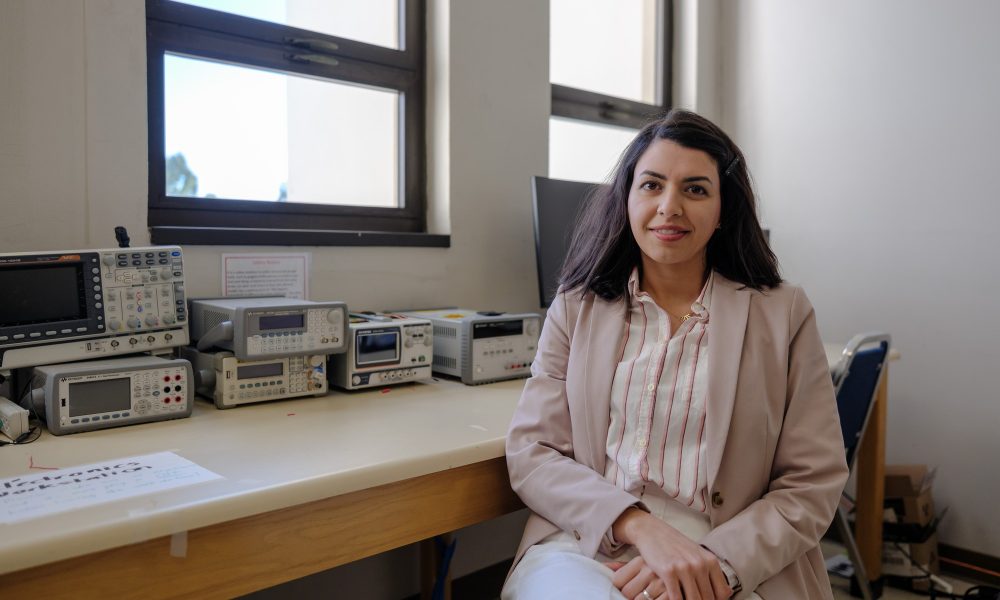In rooms filled with male students, Ava Hedayatipour often found herself being one of the only women in her electrical engineering classes. Out of the 100 students in her undergraduate program, about 10 were women.
These numbers have continued to be staggeringly low during her over-decade-long career in the field, especially for women of color.
“You feel like being singled out in a boys club,” said Hedayatipour, “You feel threatened and feel like you don’t belong and that’s not the kind of feeling you want to get when you’re trying to get educated to make a career for your life.”
Now an associate professor at Long Beach State, Hedayatipour creates spaces for women to thrive in the male-dominated field and constantly works to recruit a new generation of students to the program.
Hedayatipour’s passion for electrical engineering was sparked by her father who also worked in the field. She received her bachelor’s degree from the Iran University of Science and Technology in 2012 but initially found it difficult to connect with the subject due to its theory-based curriculum.
“After getting my first job and seeing people do great things in the field, I decided that I wanted to get a master’s,” said Hedayatipour, “I met a few Ph.D. and master’s students. They had this general picture of how to solve any problem, not just with electrical engineering.”
Hedayatipour received her master’s from the Shahid Rajaee Teacher Training University in Iran in 2015 and later moved to the U.S. to pursue her Ph.D. at the University of Tennessee in Knoxville.
As a woman of color in a predominately white and male-dominated space, Hedayatipour learned the importance of uplifting her peers and encouraged their endeavors.
“I tried to support the students that joined the Ph.D. program after me and encouraged them to support the next generation,” said Hedayatipour, “I had people support me when I was trying to do a challenging task and was stuck on a step and I even had people who were a shoulder to cry on.”
Hedayatipour joined the CSULB staff in 2020. During her first year at the university, she received a $300,000 grant from the National Science Foundation which she used to recruit students for projects.
Hedayatipour guided master’s students in the development of a more accurate pulse oximeter sensor, which has a 12-20% error rate for people with darker skin tones. Through this project, her students hope to design a sensor that can correct this and provide better results to darker-skinned individuals.
Hedayatipour is also currently developing an affordable multi-modal variable sensor to detect temperature, heart rate and blood oxygen. This would allow users to detect their symptoms at home and prevent the flooding of hospitals with patients with mild symptoms.
She has also collaborated with other colleagues to create a systems council subsection in the CSULB’s Women in Engineering initiative and worked on outreach programs for high school students to get them interested in the engineering field.
“I feel like I have educated a generation and am trying to recruit the next,” said Hedayatipour.
Although Hedayatipour has seen an improvement in women’s involvement in the field, especially in executive positions, she still recognizes a lack of diversity. Even as a professor, Hedayatipour notices that she is sometimes the only woman in a classroom full of men.
Hedayatipour encourages her female students to collaborate and create a support system to guide them through their education, especially when they are faced with imposter syndrome and other dilemmas.
“I see many challenges, but then again, I see many females trying to empower and support each other in the field.”




